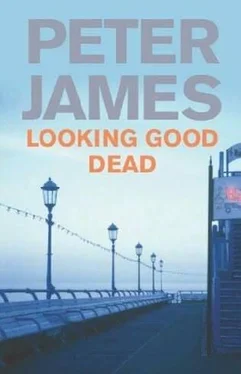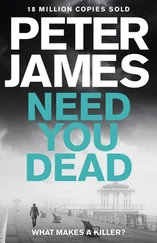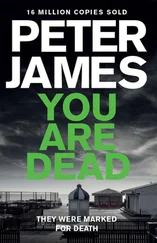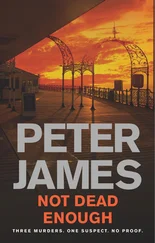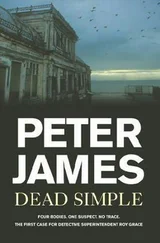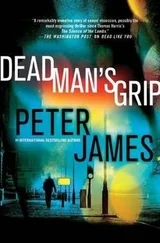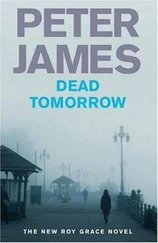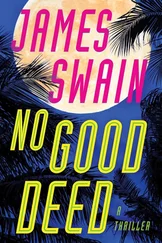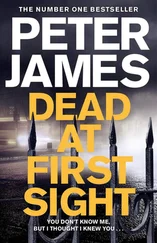‘This is the roach room,’ Erridge explained with a tinge of pride. ‘We supply a lot of these to the pharmaceutical industry for tests.’
Grace, who had always had a loathing for cockroaches, stopped and peered into one cage in which there were about twenty of the brown creatures. He shuddered.
‘One of the most resilient animals on the planet,’ the man said. ‘Did you know that if you cut off a cockroach’s head, it can live for up to fifteen days? It will still keep going back to its original source of food. Won’t be able to eat it, of course.’
‘Yech!’ Emma-Jane gulped.
‘I didn’t know that,’ Grace said. Thanks for sharing it with me, he nearly added.
‘They would survive a nuclear holocaust. They finished evolving hundreds of thousands of years ago. Doesn’t say much about the human race, does it?’
Grace looked at him, uncertain how to reply. Then he and E-J followed him through another internal door into an even longer shed. Halfway down, George Erridge stopped and pointed at one small cage. ‘There you go,’ he said. ‘Copris lunaris.’
Roy Grace looked for some moments before he saw one of the beetles with its distinctive markings, motionless.
‘So, if I might ask, what exactly is your interest in these beetles?’ Erridge said.
It was so tempting to tell him, and watch his expression, that Grace had to fight hard to restrain himself. ‘I can’t tell you the circumstances, but one of these beetles was found at a crime scene. What we would like from you is a list of any of your customers who have bought one of these from you recently.’
George Erridge went quiet, but his eyebrows jigged furiously at each other. ‘I’ve only had one customer in recent months. Not much call for them, really; just the occasional collector and new museums – don’t get many of those.’
‘Who was the customer?’ Grace asked.
Erridge dug his hands into his overall pockets, then pushed his tongue hard against his lower lip. ‘Hmmn. Funny bloke, sort of eastern European accent. He rang me ’bout two weeks ago, asking very specifically if I had any Copris lunaris in stock. Said he wanted six of them.’
‘Six?’ Grace said, horrified. His immediate thought was Six murders like this one? ‘Yes.’
‘Alive or dead?’
Erridge looked at him strangely. ‘Alive, of course.’
‘Who do you normally supply to?’
‘Like I said, the pharmaceutical industry, natural history museums, private collectors, film companies sometimes; supplied a tarantula recently for a BBC production. I’ll tell you a trade secret: insects are a lot easier to control than other animals. You want a docile cockroach, just put him in the fridge for four hours. You want an aggressive cockroach, put him in a frying pan on low heat for a few minutes.’
‘I’ll remember that,’ Grace said.
‘Yes,’ Erridge replied intensely seriously. ‘That’s what you need to do. They don’t suffer, you see. They don’t feel pain the same way we do.’
‘Lucky them.’
‘Indeed.’
‘What details do you have of this man who bought six of these?’ Emma-Jane asked.
Looking a little defensive, Erridge said, ‘I don’t have any details. I only keep records on my regulars.’
‘So you hadn’t dealt with this man before?’ she asked.
‘No.’
‘But you met him?’ Grace asked.
‘No. He phoned up, asked if I had them, and told me he would send someone to collect them. He sent a minicab and the driver paid cash.’
‘A local firm?’
‘I wouldn’t know. I don’t use minicabs; can’t afford ’em.’
Grace’s mobile phone suddenly beeped then vibrated. Excusing himself, he turned away from the insect expert and answered it.
‘DS Grace,’ he said.
It was Branson. ‘Yo, old man,’ he said. ‘How you doing?’
‘I’m shopping,’ Grace said. ‘Buying your birthday present. What’s up?’
‘The bloke who rang me during the briefing – the paranoid one I had to speak to in the phone booth who said he thinks he witnessed information about Janie Stretton’s murder?’
‘Uh huh,’ Grace said.
‘He said he saw it on his computer after inserting a CD he found on a train.’
‘Is he letting us have a look at it?’
‘I’m working on that now.’
Looking into someone’s computer was like looking into their soul, Detective Sergeant Jon Rye believed, and he had had more than enough experience to make that observation. He had lost track of the number of computers he had examined in the past seven years – probably quite a few hundred, he had recently estimated. And today he had another one, a Mac laptop, fifteen-inch screen, about a year old.
He had never yet come across a computer that could hide its secrets from him and his team. Villains of every type – burglars, fraudsters, car-ringers, phishers, paedophiles – all thought they could wipe their hard disks and be safe. But there was no such thing as erasing a disk. The software that Jon Rye had at his disposal could recover just about every bit of deleted data from a disk, and could prise every digital footprint out of every nook and cranny of a computer’s system, however complex, however well concealed.
At this moment, seated at his desk in the High Tech Crime Unit, which he ran, he was about to stare into the soul of a man called Tom Bryce. And there was no option but to spend the weekend at work because this man, who was a potential witness not a suspect, needed his machine back for work on Monday morning.
It was Jon Rye’s boast, and it was no idle boast, that within an hour of looking at any man’s computer, he would know more about him than his wife did. And invariably the computers which arrived in his bailiwick belonged to men rather than women.
The High Tech Crime Unit occupied a substantial space on the ground floor of Sussex House. To the casual observer, most of it didn’t look any different to many of the other departments in the building. It consisted of an open-plan area densely packed with workstations; on the desks of several of these stood large server towers, and on some the entrails of dismembered computers as well. On one of the untidy shelves, between rows of tilted files, sat a bag of Tate and Lyle sugar. There was a Bart Simpson clock on the wall above one desk, at which Joe Moody, a large, ponytailed man in a T-shirt and jeans, sat intently at his keyboard, logging the images of a bunch of dumber than usual young vandals, who had photographed themselves torching a car they had stolen.
One section of the room was caged off from the rest – this housed Operation Glasgow, a major child pornography investigation which had been going on for two years and was on the verge of cracking one of the largest rings in Europe. The caging was to prevent cross-contamination of evidence with the rest of the department. Four people were at work in the cage today, and Rye did not envy them. Day in, day out, for the past twenty-four months they had had to spend their working hours looking at sickening pictures of sex acts involving children. Much of Jon Rye’s work involved suspected paedophiles and nothing lessened the anger he felt every time he saw one of those pictures. God, there were some sick people out there in the world. Too damned many.
The Venetian blinds were drawn shut against the gloomy view of the cell block, made even more depressing by the pelting rain. But at least it was a tolerable temperature in his office today; most days in summer it was far too hot and stuffy, and the damned windows did not open.
A tough, wiry-framed man of thirty-eight with a boyish, pugnacious face and thinning, brush-cut fair hair, Jon Rye was dressed in a short-sleeved white shirt, navy suit trousers and black shoes, the kind of plain, near-uniform clothing he wore to work every day, and it made no odds to him that this was Saturday. These days it had become the exception for him not to work on Saturdays.
Читать дальше
